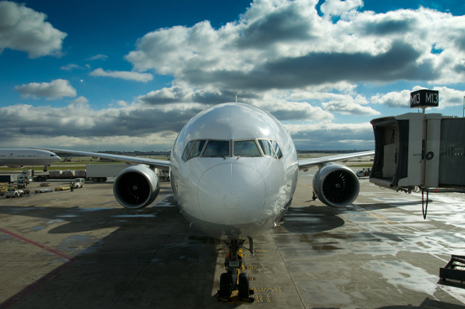
By Mark Searle, IATA Director Safety
The release of the preliminary report last month on the investigation into the cause of the tragic crash of Air India 171 was awaited by many. Friends and family of the victims want to understand what happened to their loved ones. People in the aviation industry are eager for any lessons to avoid future tragedies. And the general population seeks reassurance that everything possible is being done to make flying as safe as it can be.
This report marks an important milestone on the path to a final investigation outcome, and further updates will be closely watched.
Recent updates to investigations into the fatal Jeju Air accident in South Korea last December and the midair collision near Washington in January illustrate why timely reporting is so important. For the many parties who have a stake in understanding the cause of an aviation accident these reports provide valuable information on what has been ruled out and where the investigation’s focus is. They also reinforce confidence that progress is being made and that aviation safety is being prioritized.
That’s a critically important input in an age where media—social and traditional—is inundated by speculation, much of which would struggle to be categorized as “expert”. When we contrast this speculation against the value of informed accident investigations, IATA feels compelled to directly raise the issue of timely reporting with states globally at the International Civil Aviation Organization (ICAO) Assembly later this month.
The report of the investigators is the only word that matters. Even though a preliminary report is not conclusive (and necessarily limited to what is known at the time), it provides the official word on the direction of the investigation. This makes it clear what is known, what’s being looked into, and what’s been formally ruled out. That is highly valuable information for families, professionals and travelers.
The timing of these reports is not happenstance. Given the importance of accident investigations to improving safety, the 193 member states of the International Civil Aviation Organization (ICAO) set out clear expectations, including timelines and scope, for accident reporting in an international treaty known as the Chicago Convention. Specifically, Annex 13 to the convention require states to publish a preliminary report within 30 days of an accident and a final report as soon as possible or within a year.
The preliminary reports from the investigation boards in India, the US and South Korea have all met the first deadline. Importantly, in the case of Air India it does this with more information than some, including myself, would normally expect to see in a preliminary report.
While it is always possible to report on what is known at the 30-day mark, it is not always possible to publish a conclusive report within a year. When exceptional circumstances mean that an investigation must take longer, the investigator must publish an update on each anniversary of the accident until the investigation is finished. The NTSB’s investigative hearings into the midair collision in Washington held in August and an update on the Jeju accident from South Korean authorities have preceded those anniversaries. That’s very much welcomed.
While some investigations take longer than expected, periodic reports are helpful milestones in understanding progress towards a final report. An example of this was the investigation of the crash of Air France 447 which crashed in the South Atlantic 2009. It took nearly two years just to find the wreckage. The investigation took until 2012 to complete during which time three preliminary reports were published. The tenacity of the investigators led to changes in the design of aircraft components, the functionality of flight data recorders and pilot training.
With such important learning at stake, it is shocking that adherence to the ICAO requirements on accident investigation is not universal.
Of all the accidents that happened between 2018 and 2023, 43% of the investigations have failed to publish a final report. That includes 12 accidents which claimed the lives of 242 people. This is not an acceptable result. And we place emphasis on the importance of the preliminary report because failure to comply with ICAO standards at that early stage of investigation often foreshadows failure in final reporting.
For two years running IATA has raised the critical need to complete accident investigations as prescribed by ICAO standards in its report to the IATA Annual General Meeting. We keep a tally of final accident reports in the IATA Annual Safety Report and a summary in the both the IATA Annual Review.
There are many reasons that states give for not complying with these requirements, lack of capacity or insufficient resources among them. Politics as a reason is left unsaid but can unfortunately be inferred as a factor in some cases as well.
In the face of potentially life-saving insights, no excuse is acceptable. Resource and capacity issues can be managed through delegation or technical advice. And allowing political considerations to impact decisions or disclosures on safety flies in the face of the non-punitive just culture which is the foundation of aviation safety.
The timely updates on these recent accidents stand as positive examples of what is both expected and critically needed of states when investigating aviation accidents. These reports are an essential step to align the entire aviation industry’s capabilities to ensure that whatever caused these accidents are not repeated. Further details as they become available and final accident reports at the earliest possible moment will help everyone to learn from these tragedies and make flying safer.
Safety is aviation’s top priority. Because of this, accidents are rare. In 2024 nearly five billion people boarded 40.6 million flights. Among these were seven fatal accidents leading to 251 fatalities. That is, of course, 251 too many. Every life lost in a civil aviation accident is honored with the promise of ever greater determination to make flying even safer. Accident reports published in line with ICAO standards are incredibly valuable to fulfilling this solemn promise.